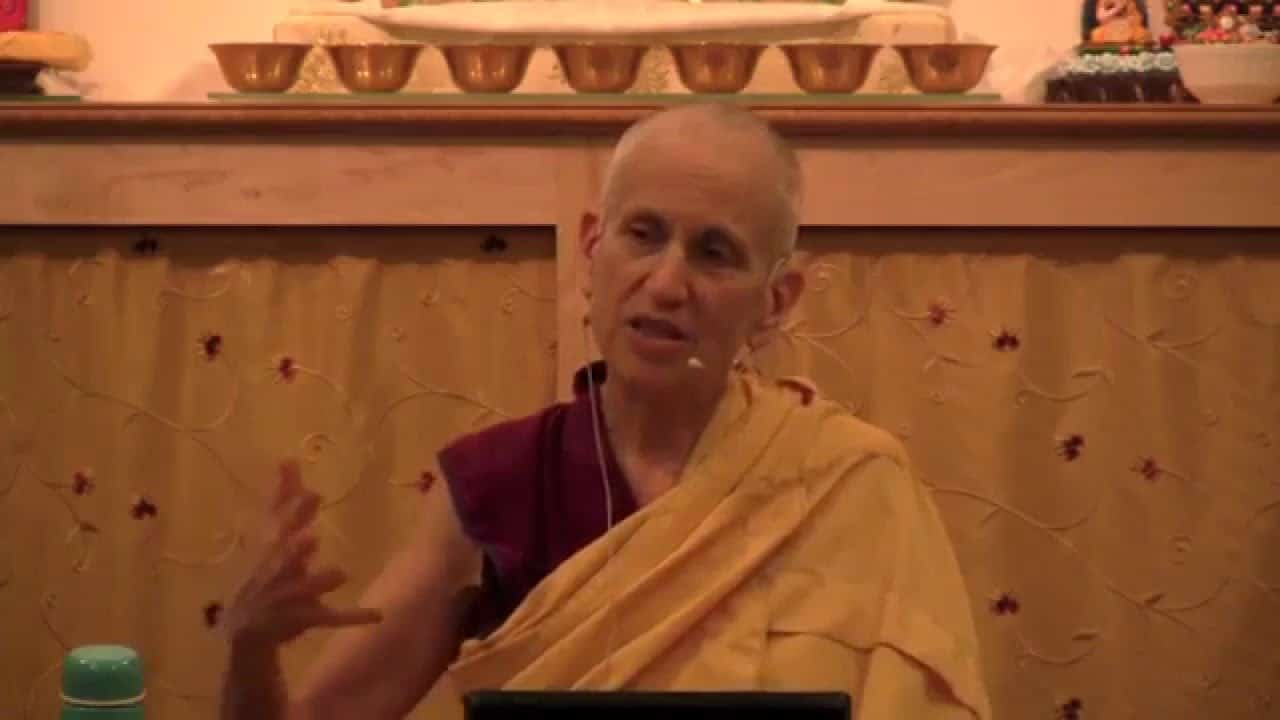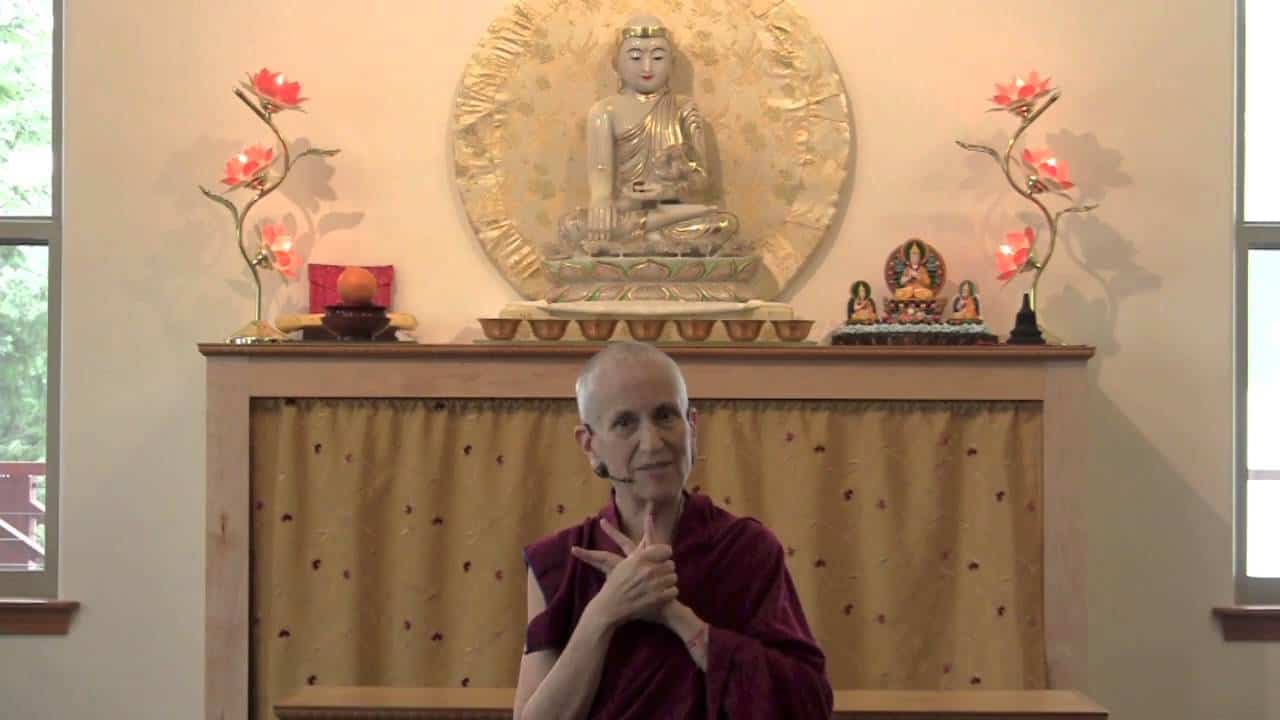The nonvirtues of stealing and sexual misconduct
Having generated the motivation for a good rebirth, the text turns to creating the causes for that goal. Part of a series of teachings on the Gomchen Lamrim by Gomchen Ngawang Drakpa. Visit Gomchen Lamrim Study Guide for a full list of contemplation points for the series.
- When we hear stories illustrating karma we need to think and ask questions
- The four parts of a complete karma of stealing
- The various actions included in the karma of stealing
- The four parts of a complete karma of unwise or unkind sexual behavior
- Looking at sexual misconduct in terms of contemporary western culture
Gomchen Lamrim 25: The nonvirtues of stealing and sexual misconduct (download)
Contemplation points
- What is the definition of stealing? Looking at it with this wording and using some of the examples given in the teaching, think of ways you have stolen in the past either willfully or not realizing it was stealing. Are there any actions that came up in considering this non-virtue that you would like to abandon in the future? Remember to purify these past negativities using the four opponent powers.
- Describe the branches for a complete action of stealing. Think of different situations where one of the branches might not be complete. How does this affect the result of the karma created?
- Describe the branches for a complete action of unwise and unkind sexual conduct. Think of different situations where one of the branches might not be complete. How does this affect the result of the karma created?
- Why do you think we get so charged about the non-virtuous pathway of sexual misconduct?
- What role does society play in your perceptions of these two non-virtues? Why is it important to be aware of this?
Venerable Thubten Chodron
Venerable Chodron emphasizes the practical application of Buddha’s teachings in our daily lives and is especially skilled at explaining them in ways easily understood and practiced by Westerners. She is well known for her warm, humorous, and lucid teachings. She was ordained as a Buddhist nun in 1977 by Kyabje Ling Rinpoche in Dharamsala, India, and in 1986 she received bhikshuni (full) ordination in Taiwan. Read her full bio.


